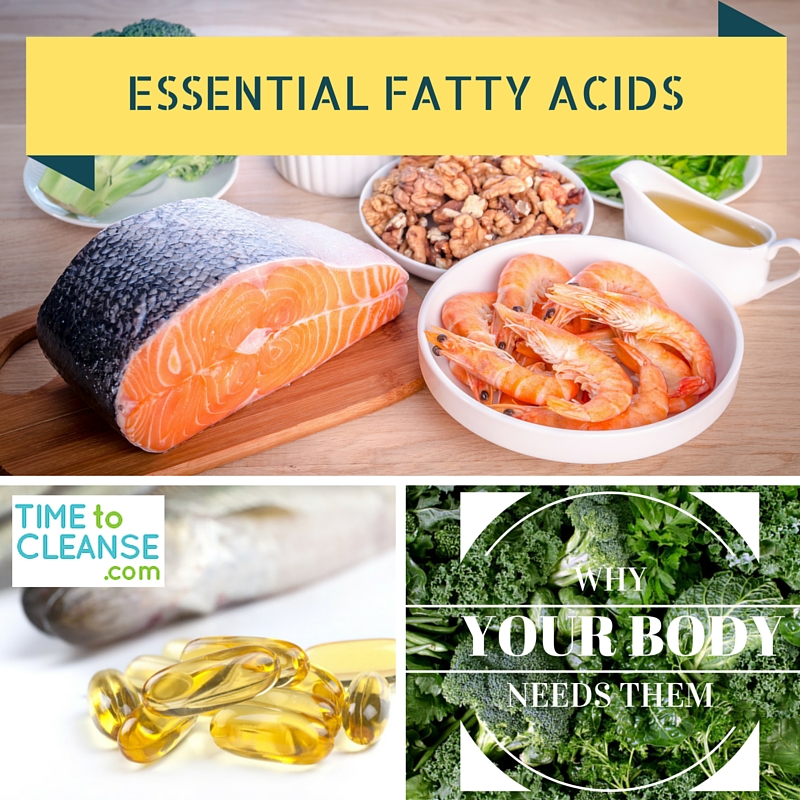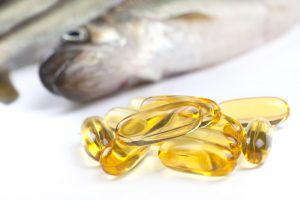
What if there was one thing you could do today that would drastically improve your overall health? The good news is – there is one thing you can do right away! The answer to better health lies in consuming the perfect balance of essential fatty acids.
What are Essential Fatty Acids (EFAs)?

Quiz: Is Your Body TOXIC? Take the Test...
(get your free personalized report)
Essential fatty acids are polyunsaturated fats that come in the form of Omega-3 (alpha-linolenic acid, “ALA”) and Omega-6 fatty acids (linoleic-acid, “LA”).
We call them “essential” because they are absolutely vital to our health. Not only that, they are the only fatty acids that the human body cannot create on its own.
The only way to obtain essential fatty acids is through diet. The ideal amount is about 1.5-2 grams of each, per day. EFAs have been proven to prevent and manage a variety of conditions such as coronary heart disease, hypertension, type-2 diabetes, renal disease, rheumatoid arthritis, ulcerative colitis, Chron’s Disease, and chronic obstructive pulmonary disease.
It’s All About Balance
When balanced, EFAs promote health and wellness. When out of sync, they contribute to the development of disease. Nowadays, we’re eating up to twenty-five times more omega-6 foods than we are omega-3 foods and this is having a fatal effect on our health. The ideal balance is a ratio of 1:1-4:1. Most of us are consuming them in ratios around 20:1-30:1
Why Do We Need More Omega-3?
In a healthy body, Omega-3 is converted into other beneficial acids such as DHA (docosahexaenoic acid) and EPA (eicosapentaenoic acid). While the benefits of Omega-3 consumption are vast, here are a few of the most notable:
Quiz: Is Your Body TOXIC? Take the Test...
(personalized report)
Essential For Brain Health in All Ages
Our brains are mostly made up of fat. So, it’s no surprise that Omega-3s drastically effect and improve the quality and functionality of our minds. Some studies have shown that elderly people and even those in the earliest stages of Alzheimer’s can benefit by consuming more omega-3.DHA from Omega-3 is often recommended for nursing mothers and small babies. However, long after children have stopped nursing or drinking formula, they still need adequate Omega-3s in their diet. Recent research suggests our brains continue developing until the age of 25!
Naturally anti-inflammatory
Many of us unknowingly suffer from low-grade chronic inflammation, especially due to our over-consumption of pro-inflammatory omega-6. Inflammation, by nature, is a good thing. The problem arises when inflammation goes from acute to chronic. Inflammation has been linked to a wealth of health problems such as heart disease, arthritis, diabetes, depression, and even cancer. Luckily food is the best remedy to ward it off!
Benefits Heart Health, Reproductive Health, and Overall Organ Health
Omega-3s help to lower cholesterol, maintain artery health, and reduce risk of cardiovascular diseases. This is in part because of the anti-inflammatory nature, but also because Omega-3s produce prostaglandins. These tiny, hormone-like molecules help with bodily functions such as heart rate, blood pressure, blood clotting, muscular contractions, and fertility/conception. In addition, Omega 3s have been shown to be a vital component in the reproductive health of both men and women.
Omega-6: Too Much Of A Good Thing
Like Omega-3, the body uses Omega 6 to convert it into other acids as needed, such as gamma linoleic acid (GLA). Consumed in the right portions, Omega-6 has been known to help with diabetes, rheumatoid arthritis, PMS, and skin disorders like eczema and psoriasis. However, most people do not reap these benefits because their bodies are in no condition to convert the linoleic acid to GLA.
Avoid refined, processed oils, such as grape seed, sunflower, safflower, canola, cottonseed, soybean, etc. These oils are found in many processed foods as well as fast foods. In addition, many grains, grain fed animals, and milk from these animals contain an over abundance of Omega-6. When animals are fed grass, like they were meant to, they are higher in Omega-3s. Turns out, you really are what you eat!
How Can We Get More Omega 3s In Our Diets?

Believe it or not, one of the best ways to get Omega-3s is to eat greens and drink green juices. Greens contain omega-3s because ALA is found within plants as it helps to convert the sunlight to carbohydrates, proteins, and fats. Sounds a little too simple right? Think again. Two heads of lettuce (or about 124 calories worth) have all of the omega-3s you need for a day, totaling to about two grams.
Krill oil is also an excellent source of omega-3. It’s rich in antioxidants, boasting 48 times the amount contained in fish oil. One of the most powerful antioxidants in krill oil is astaxanthin, a unique marine-source flavonoid that bonds with EPA and DHA, making them more bioavailable. Also, because krill is at the bottom of the food chain, it does not accumulate mercury, unlike large fish species.
Other sources are flax seed, micro-algae, chia seeds, Brazil nuts, avocados, hemp seeds, sacha inchi seeds, and in small amounts in seaweed, walnuts, and sprouts. Of course, all of things can be cold pressed into oils and be just as beneficial if kept refrigerated.
What About Fish Oil & Fish?

Fish and fish oil are indeed great sources of omega-3, however our oceans are filled with industrialized toxins, heavy metals, PCBs, and radioactive poisons, so try to use fish sources sparingly.
If you are eating fish hoping to reap the Omega-3 benefits, stick to wild-caught Alaskan salmon and very small fish like sardines. Be careful with tuna, sea bass, and marlin as they contain the highest concentrations of mercury.
In conclusion, our health is largely based around essential fatty acids. While we tend to speak frequently of macro/micronutrients, this is just as vital, if not even more important. Seek real food sources and if you do not have the time to adequately consume proper omega-3s, find a reliable supplement. Your health depends on it.
References:
Omega 6 Fatty Acids and Risk For Cardiovascular Disease, American Heart Association Science Advisory
Essential Fatty Acids, Oregon State University
Essential Fatty Acids And Human Brain, National Center for Biotechnology Information
The Importance of the Ratio of Omega-6/Omega-3 Essential Fatty Acids, Biomedicine & Pharmacotherapy
Essential Fatty Acids As Functional Components of Food – A Review, Journal of Food Science & Technology
Nutrition in Brain Development and Aging: Role Of Essential Fatty Acids, Nutrition Reviews
Essential Fatty Acids in Health and Chronic Disease, The American Journal of Clinical Nutrition
